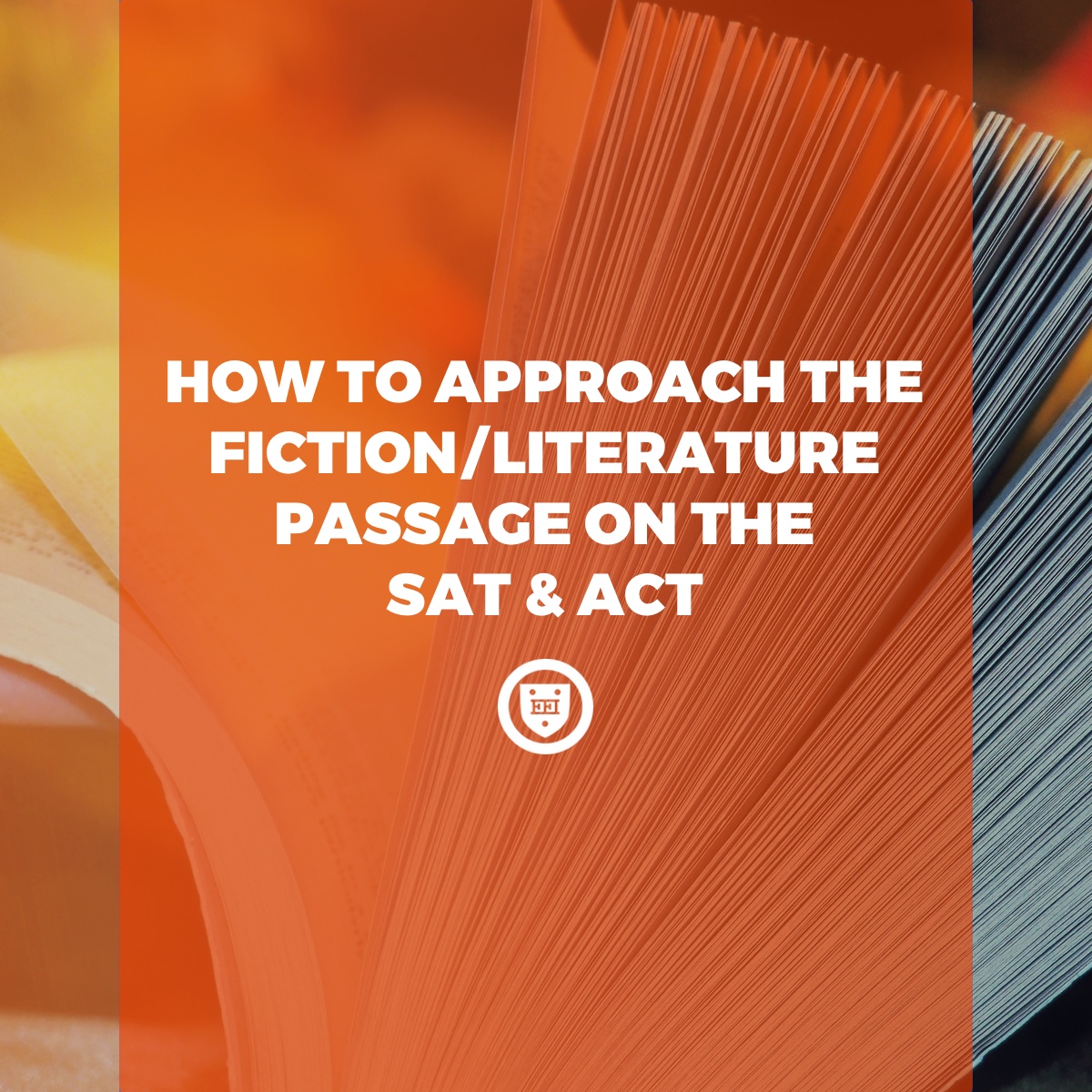How to Approach the Fiction/Literature Passage on the SAT & ACT
The first passage on both the ACT and the SAT Reading tests is the fiction/literature passage. For some students, the fiction passage is the most interesting one on the test because it offers a change of pace from the others, which tend to be fact-based and straightforward. However, when teaching these passages, I often hear collective groans from my students because many of them fail to grasp what actually happens within these stories. Whether it’s because of a complicated section of the passage filled with unfamiliar vocabulary or a subtle twist that students don’t catch, the fiction passage can occasionally leave you feeling helpless.
While the fiction/literature passage will be an excerpt from a novel or story, remember to only consider the available text in front of you. This point is true for all reading passages on the ACT and SAT: you will never need to rely on background knowledge. The distinction between the fiction passage and the others is important when considering your approach to the Reading test. It can be more difficult to annotate a piece of fiction than nonfiction because you have to keep track of the characters, plot, and mood, in addition to main ideas and authorial purpose. Also, the stories don’t always follow a linear train of thought, so you have to be vigilant in order to spot the nuances within the text. Moreover, many fiction passages are like puzzles in which all the pieces may not seem to fit until you’ve finished reading the entire thing. This unpredictability can stump readers who focus on the wrong elements.
To reduce confusion, here are some suggestions on how to approach fiction and literature passages on the ACT and SAT:
Characters and their relationships to one another are of utmost importance.
Keep track of who says what and why. Also, pay close attention to the actions each character takes and how they feel about the situation occurring in the passage. Finally, note any descriptive language about the characters that the author uses to further inform you about why they behave the way that they do.
Focus on the setting.
When and where does the story take place? You’ll often find clues to these questions in the italics before the passage text begins. This information will ground you in the realities of the particular story taking place. A narrative from the 18th century will likely have a much different style than a 21st-century narrative. Do not treat these details as unnecessary.
Follow any action that takes place within the story.
The plot is frequently the trickiest element to fully understand because the stories are so short. Depending on how the story is written, very little may seem to occur, so pay close attention to any shifts throughout the text. These may be subtle, but they’re often critical to understanding what’s happening.
Always make note of whether the narrator is the author or one of the characters as that can influence the tone of the passage.
Whereas authors tend to use an objective tone, characters can demonstrate a range of emotions. Keep this in mind for any tone/attitude questions.
Seek out the story’s sensory details, which cumulatively form a story’s mood.
Understanding the mood can help you narrow down your answer choices and keep you from falling for misleading answers.
These suggestions should form the basis for your note-taking. The fiction passage can be one of the most time-consuming passages to deal with on the SAT or ACT. Remember, you don’t have to start with the first passage if literature tends to give you trouble. Play to your individual strengths and approach the reading passages in an order that feels comfortable. Use the recommendations within this article to help you practice until you develop a comfort level with fiction.
Ready to take your SAT scores to the next level? Schedule a free practice test and consultation today!
Jon G. is originally from Houston, Texas. He holds a Bachelor's degree from Harvard University and is currently one of the resident English gurus at Elite Prep Los Angeles. Nothing makes him more proud and pumped up than watching his students succeed. When it comes to hitting the books, Jon recommends starting early and studying in increments to avoid burnout. He's a huge basketball fan, loves green tea, and his favorite vocabulary word is "seditious."


